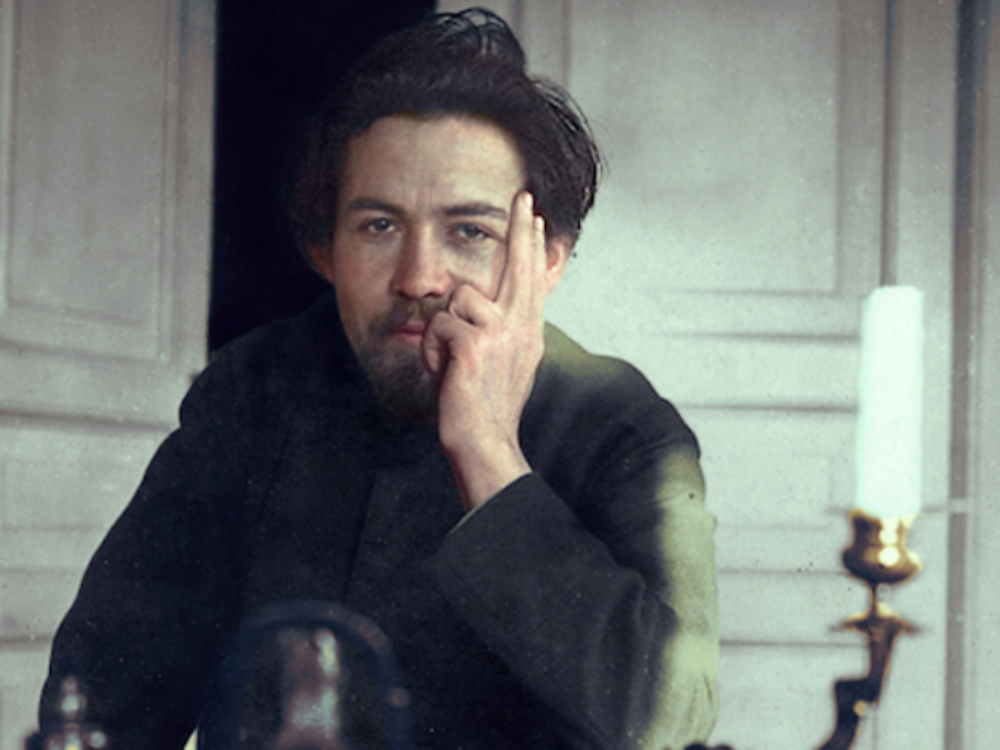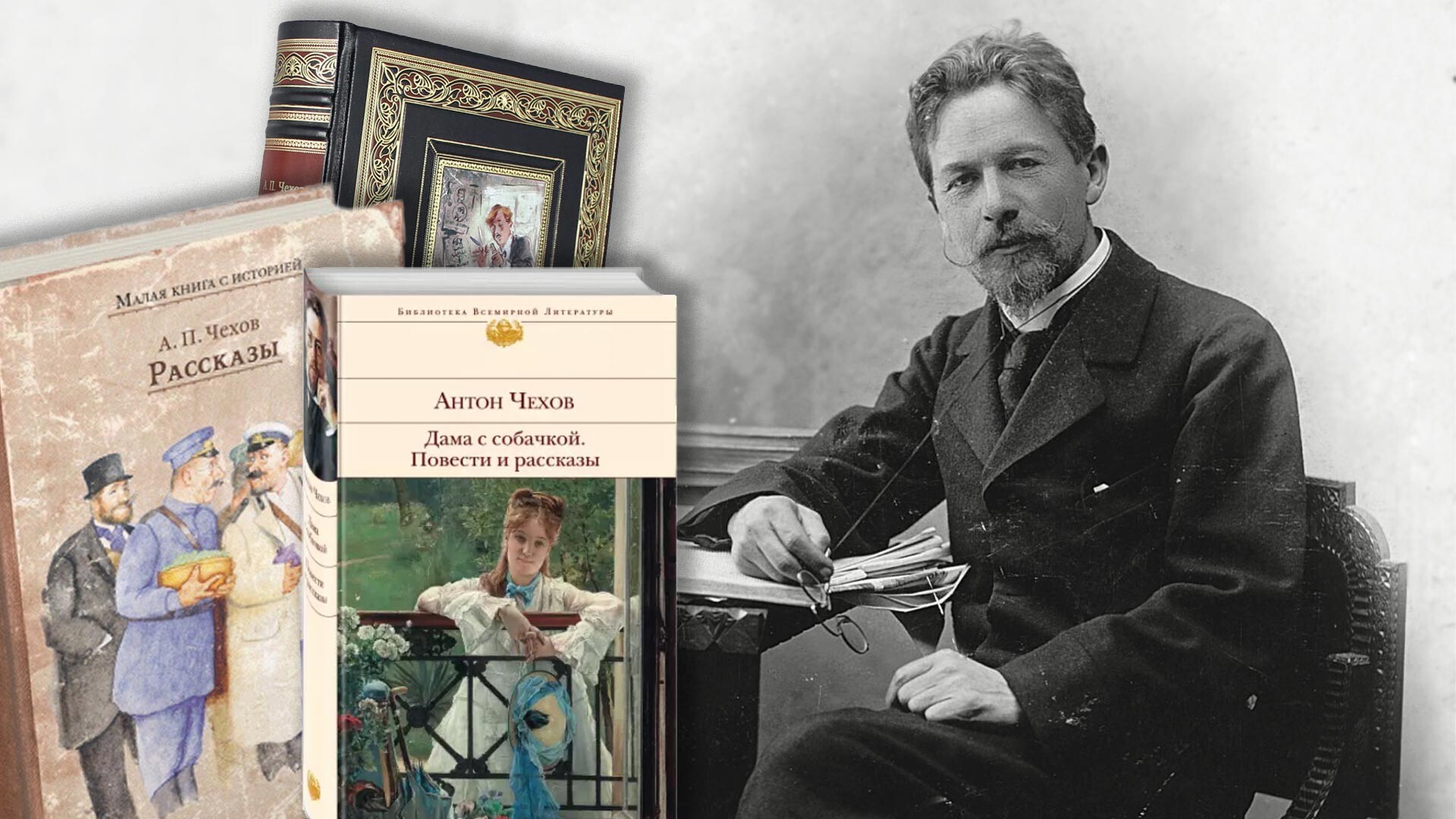Anton Chekhov: Master of the Short Story and Pioneer of Modern Drama
Introduction:
Anton Chekhov, renowned as one of the greatest playwrights and short story writers in literary history, left an indelible mark on the world of literature with his insightful portrayals of human nature, complex characters, and profound observations of life. Born on January 29, 1860, in Taganrog, Russia, Chekhov's works continue to captivate readers and audiences worldwide, earning him a lasting legacy as a pioneer of modern drama and the master of the short story. In this essay, we will explore the life, works, and enduring influence of Anton Chekhov.
Early Life and Education:
Anton Pavlovich Chekhov was born into a modest family in the port city of Taganrog, located in southern Russia. His father, Pavel, was a grocer, while his mother, Yevgeniya, ran a small boarding house. Chekhov's childhood was marked by financial struggles and familial hardships, as his father's business failed, and the family faced economic instability.
Despite the challenges of his upbringing, Chekhov demonstrated a keen intellect and a passion for literature from a young age. He voraciously read books from his father's modest library and began writing short stories and sketches in his early teens. Chekhov's talent was recognized by his teachers, who encouraged him to pursue a higher education in Moscow.
In 1879, Chekhov enrolled at the Moscow State University Medical School to study medicine, following in the footsteps of his father and elder brother. While studying medicine, Chekhov continued to write and publish short stories in various literary journals, earning recognition for his keen observations of human behavior and social commentary.
Literary Career:
After completing his medical studies in 1884, Chekhov embarked on a successful career as a writer, earning a reputation for his poignant and psychologically astute portrayals of Russian life. His early works, including "The Steppe" (1888) and "The Duel" (1891), established him as a rising star in Russian literature and earned him critical acclaim for his ability to capture the nuances of everyday life with precision and empathy.
Chekhov's breakthrough came with the publication of his short story collection "The Tales of Chekhov," which was published in multiple volumes between 1886 and 1899. These stories, characterized by their realism, humor, and deep empathy for their characters, solidified Chekhov's reputation as a master of the short story form and earned him widespread acclaim both in Russia and abroad.
In addition to his short stories, Chekhov also achieved great success as a playwright, revolutionizing the genre with his innovative approach to character development, dialogue, and dramatic structure. His plays, including "The Seagull" (1896), "Uncle Vanya" (1899), "Three Sisters" (1901), and "The Cherry Orchard" (1904), are considered masterpieces of modern drama, renowned for their psychological depth, moral ambiguity, and nuanced exploration of human relationships.
Chekhov's plays challenged the conventions of traditional theater, eschewing melodrama and grandiosity in favor of subtlety, understatement, and emotional complexity. His characters are often flawed, conflicted individuals struggling to find meaning and purpose in a world marked by disillusionment and uncertainty. Chekhov's use of subtext and his ability to convey the complexities of human emotion through dialogue revolutionized the way playwrights approached the craft of theater.
Legacy and Influence:
Anton Chekhov's influence on literature and theater extends far beyond his own lifetime, shaping the work of countless writers, playwrights, and filmmakers in the decades that followed. His emphasis on psychological realism, his exploration of the human condition, and his commitment to portraying the complexities of life with honesty and integrity continue to resonate with audiences around the world.
Chekhov's impact on the development of the short story form is particularly significant, with writers such as James Joyce, Katherine Mansfield, and Raymond Carver citing him as a major influence on their work. His ability to capture the fleeting moments of everyday life, his attention to detail, and his deep empathy for his characters set a standard for the genre that has rarely been surpassed.
In the realm of theater, Chekhov's plays continue to be performed and studied by actors, directors, and scholars alike, attesting to their enduring relevance and appeal. His works have been adapted into numerous film and television productions, with directors such as Louis Malle, Andrei Tarkovsky, and Michael Cacoyannis bringing his stories to life on the screen.
Chekhov's legacy also extends to the realm of medicine, where his experiences as a physician informed his understanding of human nature and informed his literary work. His insights into the human condition, his compassion for the sick and suffering, and his belief in the importance of empathy and kindness continue to inspire medical professionals around the world.
Anton Chekhov's contributions to literature and theater are immeasurable, earning him a place among the most revered and influential writers in history. His mastery of the short story form, his groundbreaking approach to drama, and his profound insights into the human psyche have left an indelible mark on the world of literature and continue to inspire readers, writers, and audiences to this day. As we celebrate his life and work, we are reminded of the enduring power of storytelling to illuminate the complexities of the human experience and to bridge the gaps that separate us from one another.Anton Chekhov's life and works continue to be studied and celebrated for their enduring relevance and universal appeal. His ability to capture the complexities of the human condition with compassion, insight, and humor transcends the boundaries of time and culture, resonating with readers and audiences across generations.
In addition to his literary achievements, Chekhov was also a keen observer of society and politics, using his writing to critique social injustices, moral hypocrisy, and the inequities of Russian society. His plays and stories often explore themes of class struggle, economic disparity, and the clash between tradition and modernity, shedding light on the social issues of his time while also offering timeless insights into the human condition.
Chekhov's commitment to truth and authenticity in his writing, his rejection of sentimentality and moralizing, and his embrace of ambiguity and nuance continue to inspire writers and artists to strive for honesty and integrity in their work. His belief in the power of literature to provoke thought, stir emotions, and foster empathy remains as relevant today as it was during his lifetime, reminding us of the enduring importance of art in our lives. As we reflect on the life and legacy of Anton Chekhov, we are reminded of the profound impact that one individual can have on the world through their art and their ideas. Chekhov's ability to capture the essence of the human experience with wit, wisdom, and compassion continues to enrich our understanding of ourselves and the world around us, inspiring us to embrace life's complexities with grace, humor, and humility.
As we reflect on the life and legacy of Anton Chekhov, we are reminded of the profound impact that one individual can have on the world through their art and their ideas. Chekhov's ability to capture the essence of the human experience with wit, wisdom, and compassion continues to enrich our understanding of ourselves and the world around us, inspiring us to embrace life's complexities with grace, humor, and humility.
In conclusion, Anton Chekhov's contributions to literature, theater, and the arts are as significant today as they were during his lifetime. His timeless works continue to speak to readers and audiences around the world, offering insights into the human condition that are as relevant and profound as ever. As we celebrate his life and legacy, we are reminded of the enduring power of storytelling to illuminate our lives, deepen our understanding of ourselves and others, and inspire us to strive for greater empathy, compassion, and understanding in the world.












































